BSN Honors Program
Policy & Leadership Track
Mission
To foster the leadership potential of undergraduate nursing students by demonstrating the impact and responsibility that professional nurses hold in health care and beyond.
Vision
To promote a transformative experience that produces nursing leaders that will advance the nursing profession now and into the future.
Values
- Preparing professional nurses to embrace the opportunities their role provides.
- Fostering an understanding of advocacy in order to discover how policy impacts practice and populations.
- Finding one's voice through exploration of authentic leadership.
Summary / Overview
The Policy & Leadership Track, which is offered in parallel with the BSN Honors Program, is a co-curricular opportunity for UTMB baccalaureate Summer entry nursing students interested in becoming future nurse leaders and advocates for patients and the nursing profession. Students will foster leadership skills and learn more about health care policy and the nurse's role in influencing change. The program allows students opportunities to learn from nurse leaders, various health care professionals, and those involved in the legislative process. Emphasis is placed on nurses' impact on health policy.
Track Details
Each Policy and Leadership Undergraduate Scholar (PLUS), is eligible to receive an estimated $2,000 scholarship distribution for the 2nd through the 4th semesters of the BSN program contingent upon eligibility and meeting the criteria for the program. Students will learn about the nurse's role as a leader and how to be actively involved in health care policy; and participate in special events designed to elevate leadership potential, including networking dinners with local leaders, as well as events that broaden their prospective on health care policy, such as Nurses Day at the Capitol in Austin.
Milestones
Each cohort of PLUS students will participate in two modules per semester. These modules will rotate throughout each academic year so students complete all twelve prior to graduation. Students will experience unique opportunities such as shadowing nurse leaders, attend events related to health care legislation, and network with nurses in a variety of different professional areas. Through these experiences, students will learn more about their own leadership styles and what makes an effective nurse leader.
Meet our 2025-26 Cohort PLUS Scholars
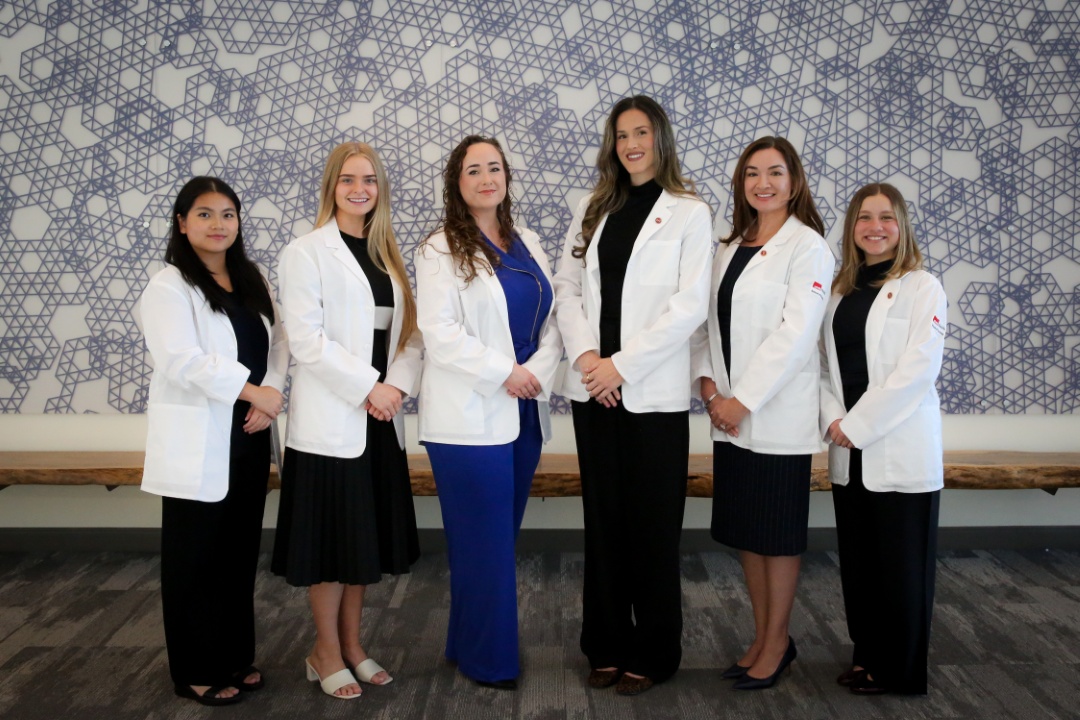
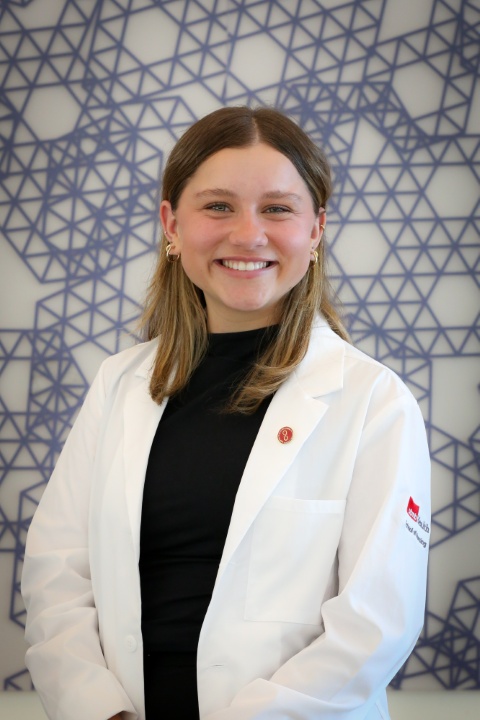
Julia Alvarez graduated from Texas A&M University in May 2025 with a Bachelor of Science in Kinesiology. Throughout her time at A&M, she was involved in several leadership organizations that deepened her passion for service and ultimately her decision to pursue nursing. One of her most meaningful experiences came from leading a philanthropy event centered on children's literacy. Through this experience, Julia discovered how meaningful compassionate leadership can be, and how even the smallest moments of connection can uplift a community. Choosing nursing, specifically UTMB, has encouraged her to grow both personally and in the field of nursing, which she feels incredibly grateful for. She is especially thankful to the Policy & Leadership Honors Track for furthering her capabilities as a nursing leader, and for her family, friends, peers, and the UTMB faculty who continue to support, encourage, and guide her throughout this journey.
I have always lived by the quote, people won't remember what you said or what you did; they'll remember how you made them feel,
and I carry this reminder with me in every aspect of my life. Whether it's with a patient, a peer, or a stranger, my goal is to leave others feeling seen and supported. To me, the strongest leaders are those who are encouraging and brave enough to advocate when voices go unheard. That is the kind of leader—and the kind of nurse—I strive to be.

Madison Applebe began her education at the University of Central Florida, majoring in political science on a pre-law track while playing softball. Having played softball for most of her life, she developed a strong work ethic and a deep commitment to supporting others—qualities that ultimately guided her toward a career in healthcare. After her first year, she realized her true passion was nursing, so she returned home and completed her prerequisites at San Jacinto College. During that time, she started a business coaching children in softball and baseball, an experience through which she discovered her love for working with children and developed a strong interest in pediatrics. After completing her courses, she applied to UTMB because she wanted to continue her education in a supportive, welcoming environment that prioritizes its students. While healthcare became the foundation of her academic path, she maintained her interest in law, which led her to join the Policy and Leadership Honors Program. She believes this program will deepen her understanding of how policy shapes nursing and prepare her for a future career that blends law and medicine, ultimately allowing her to better advocate for the children and families she hopes to serve.

Kira Jacobson earned her B.S. in Marine Biology from Texas A&M in 2015. A lifelong Girl Scout and Gold Award recipient, she served as a troop leader and camp counselor during college. After six months in marine research, she sought more meaningful work and moved to Panama, where she co-managed a wildlife sanctuary and conducted rehabilitation research on monkeys rescued from trauma and the exotic pet trade. Between her time abroad, she volunteered with the American Red Cross as a CPR and Emergency Medical Response instructor. During Hurricane Harvey, she oversaw daily operations of the NRG Center shelter's volunteer medical clinic, coordinating care for more than 8,000 evacuees.
During the COVID 19 pandemic, Kira worked in Labor and Delivery in Honolulu before returning to Texas to join MD Anderson Cancer Center as a patient care technician in the Stem Cell Transplant and Car T unit. There, she saw firsthand how strong collaboration between leadership and nursing staff improved patient outcomes. She helped establish and lead the Patient Care Technician Council, representing over 650 PCTs and partnering with leadership to address patient care improvements, retention, and career development.
Together, these experiences shaped her commitment to combining research, healthcare, and leadership to advance collaborative nursing practice and advocate for both patients and providers.
A good leader listens, works hard, and makes tough choices. A great leader actively listens, develops, and uplifts others, building future leaders and deeper engagement from their team, understanding that everyone has something to contribute.
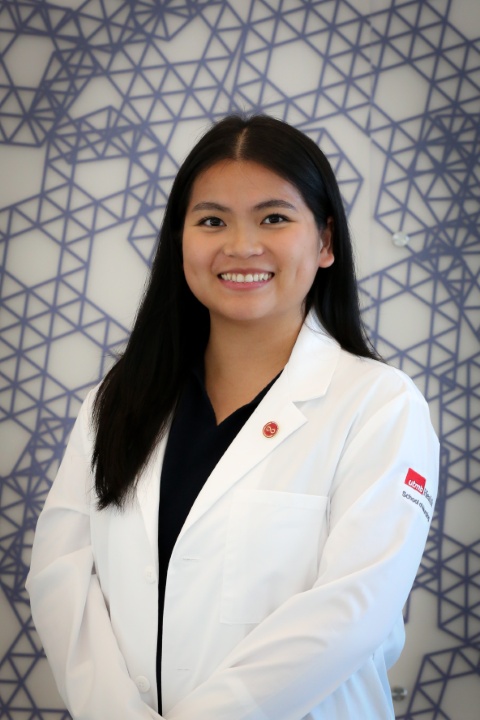
Ashleigh Pham was born and raised in Phu Quoc, Vietnam, and moved to the United States during high school. She graduated from Texas A&M University with a major in Forensic Science and a minor in Chemistry. Deeply committed to community service, she regularly volunteers at The Luke Society, a free clinic providing healthcare to the unhoused community of Galveston. As a strong advocate for accessible healthcare for all, she chose to attend UTMB Nursing School because its mission to care for diverse populations across Texas aligns closely with her values.
Outside the classroom, Ashleigh serves as a Student Ambassador, Peer Mentor, and Community Chair for the Student Nurse Association, roles that allow her to support her peers and contribute to a stronger campus community. She joined the Policy & Leadership Honors Track because she believes leadership and policy are essential to creating meaningful, lasting change in healthcare. To her, leadership means uplifting others through intentional action. She strives to be a leader who recognizes individual strengths and challenges, fosters meaningful relationships, and provides thoughtful guidance to help others succeed.
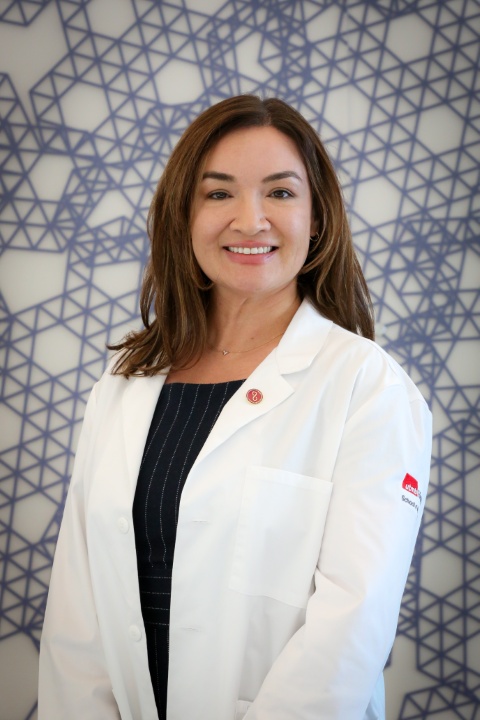
Georgia Vega holds an MBA in Healthcare Management from Western Governors University and a Bachelor of Science in Clinical Laboratory Science from the University of Texas Medical Branch. She is a board-certified healthcare executive (FACHE) and a certified Medical Laboratory Scientist (ASCP). Her career has centered on patient safety, operational excellence, and quality improvement across hospital and outpatient settings. Her work at a Federally Qualified Health Center was especially formative, deepening her understanding of healthcare inequities and inspiring her to pursue nursing to serve patients more directly.
Georgia's commitment to service extends beyond her profession. She volunteers with Aid to Victims of Domestic Abuse, has chaired national committees for the American Society for Clinical Laboratory Science, and served on the Customer Experience Program advisory board at Our Lady of the Lake University, reflecting her belief that leadership means using one's skills to uplift others.
She returned to UTMB to earn her Bachelor of Science in Nursing because of its strong reputation and collaborative culture. A dedicated lifelong learner and servant leader, Georgia aims to make healthcare more compassionate, collaborative, and accessible. Participation in the Policy and Leadership program will strengthen her ability to drive meaningful change by uniting leadership, policy, and patient-centered care. She remains grateful for the family, friends, and mentors who continue to support her journey.
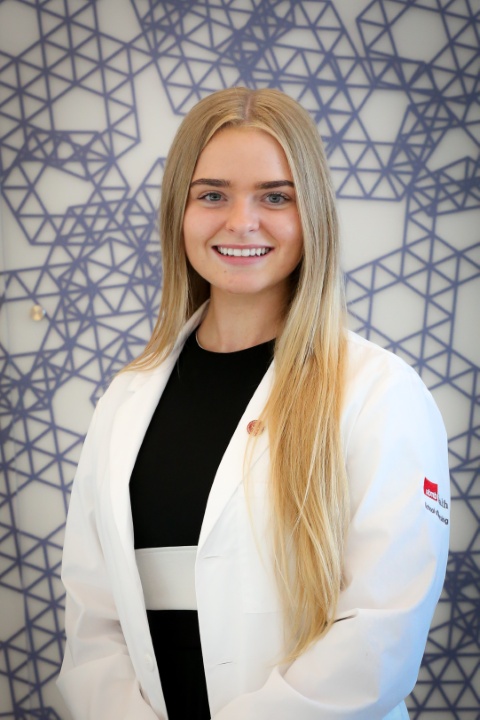
Ava Paris Wagner, who goes by her middle name, Paris, began her educational journey by earning an Associate of General Studies from Alvin Community College. Her interest in healthcare began in high school when she obtained her pharmacy technician license (CPhT), a credential she continues to maintain. This early exposure to the medical field sparked her passion for nursing and patient care.
Before entering nursing school, Paris volunteered at a nonprofit medical clinic in Houston, gaining valuable hands-on experience that strengthened her commitment to serving others. Raised by a mother who is both a nurse and a researcher, she witnessed the meaningful impact of compassionate, evidence based care on individuals and communities. Watching her mother complete her doctoral studies within the UT System inspired Paris to follow in her footsteps and pursue her nursing education at UTMB.
Outside of academics, Paris is deeply committed to community service. She regularly volunteers at her church, helping lead the social media team and supporting youth programs. These experiences reinforced her belief that leadership is rooted in humility, service, and influence, putting others first, listening with empathy, and recognizing the responsibility that accompanies guiding others.
Paris joined the Policy and Leadership program to challenge herself to grow as a future nurse leader and advocate for the nursing profession at both the state and national levels. Through this program, she hopes to learn from experienced nurses, legislators, and healthcare professionals while continuing to develop the skills needed to make a meaningful impact in healthcare and beyond.
Track Coordinator


